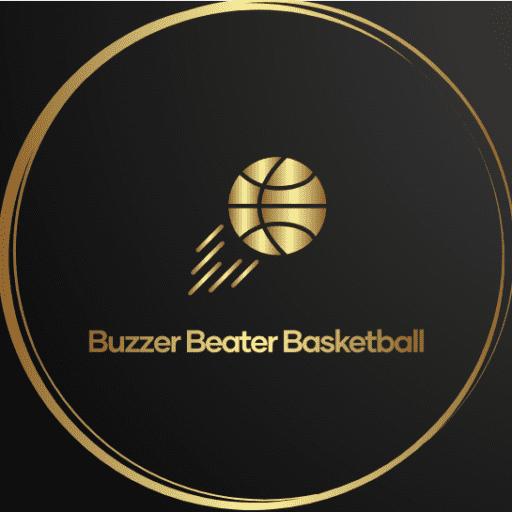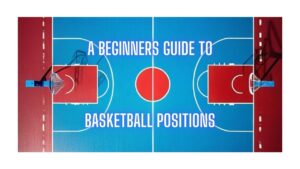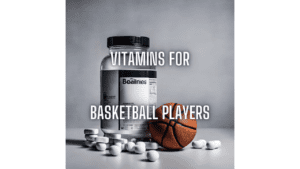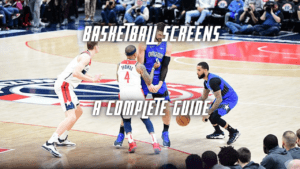Optimizing Performance: A Comprehensive Nutrition Guide for Basketball Players
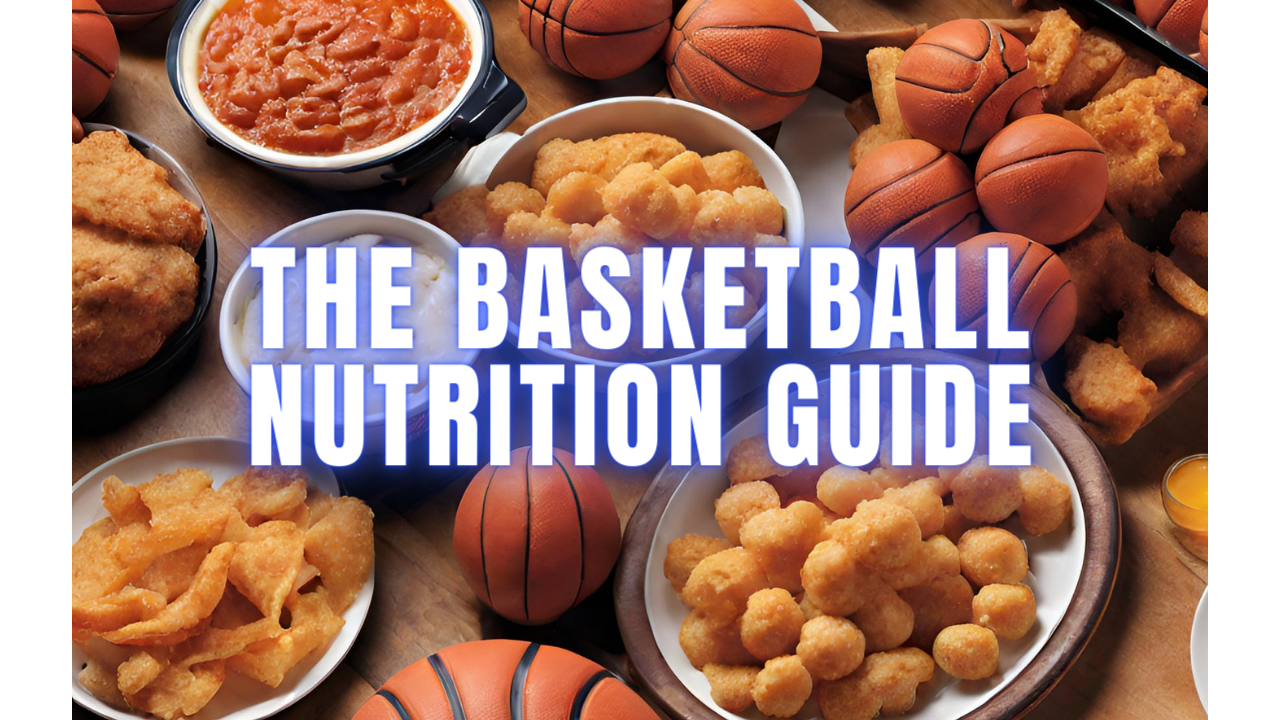
In the electrifying world of basketball, where agility, endurance, and skill intertwine, the importance of nutrition cannot be overstated. As basketball athletes push their bodies to the limit on the court, their performance is not solely reliant on talent and practice; it is profoundly influenced by what they consume off the court. Welcome to the definitive guide on nutrition tailored specifically for basketball athletes – a roadmap to unlocking peak performance and maximizing potential.
Fueling one’s body effectively is not merely about consuming calories; it’s a strategic approach that balances macronutrients, micronutrients, and hydration. Whether it’s sprinting down the court, leaping for a rebound, or executing a precision pass, every movement in basketball demands energy. This energy is derived from the foods we eat, making nutrition the cornerstone of athletic success.
Throughout this article, we delve deep into the intricate relationship between nutrition and basketball performance. From the pre-game rituals that set the stage for success to the post-game recovery strategies that optimize muscle repair, each aspect of a basketball athlete’s dietary regimen is meticulously explored.
But why focus on basketball specifically? Basketball is a sport of bursts – short, explosive movements followed by brief periods of rest. It’s a game where endurance and power must coexist harmoniously within the athlete’s physique. This unique blend of physical demands necessitates a tailored nutritional approach, one that supports both immediate energy needs and sustained performance throughout the game.
Moreover, the nature of basketball – fast-paced, dynamic, and physically demanding – places significant stress on the body, increasing the importance of proper nutrition for injury prevention and overall well-being. By understanding the science behind nutrition and its direct impact on athletic performance, basketball athletes can gain a competitive edge and elevate their game to new heights. Lebron James has been in the NBA for over 20 seasons and this is due to his excellent training and diet regimen.
So, whether you’re a seasoned veteran looking to fine-tune your nutritional strategy or a rookie eager to learn the ropes, join us on this journey as we unravel the secrets to fueling success on the basketball court. It’s time to take your game – and your nutrition – to the next level.
Understanding the Nutritional Needs of Basketball Athletes
In the dynamic realm of basketball, where split-second decisions and lightning-fast movements reign supreme, the significance of nutrition cannot be overstated. Understanding the unique nutritional needs of basketball athletes is akin to unlocking the secret recipe for optimal performance on the court. From fueling explosive sprints to supporting rapid muscle recovery, every aspect of a player’s dietary intake plays a pivotal role in shaping their game-day prowess and overall athletic longevity. In this section, we delve deep into the intricate relationship between nutrition and basketball performance, exploring the vital role of macronutrients, micronutrients, and hydration in sustaining energy levels, enhancing endurance, and promoting rapid recovery. By comprehensively understanding and addressing these nutritional requirements, basketball players can harness the power of proper nutrition to elevate their game to unprecedented heights and dominate the hardwood with confidence and vigor.
Macronutrients for Energy and Recovery in Basketball
-
Carbohydrates
Carbohydrates stand as the primary fuel source for basketball players, providing the quick bursts of energy needed to sprint down the court, make sharp cuts, and execute precise movements. Optimal carbohydrate intake before a game ensures that glycogen stores are fully stocked, allowing players to maintain peak performance throughout the entire match. Complex carbohydrates such as whole grains, fruits, and vegetables provide sustained energy release, while simple carbohydrates like sports drinks or energy gels can be consumed during intense bouts of activity to replenish glycogen stores rapidly.
-
Proteins
Equally crucial is the role of protein in supporting muscle repair and recovery, especially in a sport as physically demanding as basketball. Protein not only aids in repairing muscle tissue damaged during intense workouts and games but also plays a crucial role in muscle growth and maintenance. Basketball players should aim to include lean sources of protein such as chicken, turkey, fish, tofu, legumes, and dairy products in their diet to ensure adequate muscle recovery and growth.
-
Fats
Healthy fats play a vital role in providing sustained energy and supporting overall health and performance. While carbohydrates serve as the body’s primary fuel source during high-intensity activities, healthy fats provide a valuable source of energy during low to moderate-intensity exercises and can help maintain satiety levels throughout the day. Incorporating sources of healthy fats such as avocados, nuts, seeds, and olive oil into the diet not only aids in energy production but also supports cardiovascular health and inflammation reduction, crucial for sustained athletic performance.
Micronutrients Essential for Optimal Performance In Basketball
-
Vitamins
Vitamins are indispensable micronutrients that serve as co-factors in numerous biochemical reactions essential for energy production, muscle contraction, and recovery. Vitamin B complex, including B1, B2, B3, B6, and B12, is particularly crucial for energy metabolism, aiding in the conversion of carbohydrates, proteins, and fats into usable energy. Vitamin C, a powerful antioxidant, supports immune function and helps mitigate exercise-induced oxidative stress, promoting faster recovery and reducing the risk of illness or injury. Additionally, vitamin D plays a vital role in bone health, muscle function, and immune regulation, all of which are critical for basketball athletes to perform at their peak.
-
Minerals
Similarly, minerals are essential for supporting various physiological functions crucial for athletic performance. Calcium, for instance, is vital for bone health, ensuring optimal bone density and strength to withstand the physical demands of basketball. Magnesium plays a key role in muscle contraction and relaxation, energy production, and electrolyte balance, all of which are critical for preventing muscle cramps and optimizing performance. Potassium and sodium, two key electrolytes, are essential for maintaining fluid balance, regulating blood pressure, and supporting nerve and muscle function, making them vital for preventing dehydration and optimizing hydration status during intense exercise.
Importance Of Hydration In Basketball
In the realm of basketball, where every sprint, jump, and pivot demands peak physical performance, the importance of hydration cannot be overstated. While athletes diligently focus on their training regimens, nutritional intake, and recovery strategies, hydration often takes a back seat despite being a cornerstone of athletic success.
Hydration is not merely about quenching thirst; it’s about maintaining fluid balance within the body to support optimal function of various physiological processes critical for athletic performance. In the fast-paced environment of basketball, where players are constantly in motion, sweating profusely, and expending significant amounts of energy, dehydration can quickly become a performance-limiting factor. Even mild dehydration can lead to decreased cognitive function, impaired motor skills, decreased endurance, and increased risk of injury, all of which can hinder a player’s ability to perform at their best on the court.
Moreover, adequate hydration is essential for regulating body temperature, lubricating joints, transporting nutrients, and removing waste products from the body, all of which are crucial for sustaining prolonged physical activity and preventing fatigue. In the heat of competition, maintaining optimal hydration status becomes even more critical, as excessive fluid loss through sweat can rapidly lead to dehydration and compromise performance and safety.
Furthermore, dehydration can have cascading effects on various aspects of performance, including reaction time, decision-making ability, and overall physical output. Studies have shown that even mild dehydration equivalent to a 2% loss of body weight can impair cognitive function, decrease muscular endurance, and increase perceived exertion, all of which can significantly impact a player’s ability to compete at their highest level.
Pre-Game Nutrition For A Basketball Game
-
Meal Timing and Composition
Meal timing and composition are crucial components of a basketball player’s nutrition plan, directly influencing energy levels, performance, and recovery both on and off the court. By strategically planning when and what to eat, athletes can optimize fuel availability, support muscle repair and growth, and sustain energy levels throughout training sessions and games.
First and foremost, meal timing plays a pivotal role in ensuring that basketball players have the necessary energy to perform at their best during training and competition. Pre-game meals should be timed to provide a balance of carbohydrates, protein, and fats, with an emphasis on easily digestible foods to prevent gastrointestinal discomfort during physical exertion. Ideally, players should consume a well-balanced meal containing complex carbohydrates, lean proteins, and healthy fats 2-3 hours before a game or practice to allow for adequate digestion and absorption of nutrients. This meal should provide a source of sustained energy to fuel the demands of intense physical activity while also supporting muscle repair and recovery.
In addition to pre-game meals, players should also prioritize post-game nutrition to support muscle recovery and replenish glycogen stores depleted during exercise. Consuming a combination of carbohydrates and protein within the first 30-60 minutes after exercise can enhance glycogen resynthesis, promote muscle repair, and facilitate recovery, ultimately reducing the risk of fatigue and injury in subsequent training sessions or games. This post-game meal or snack should include fast-digesting carbohydrates to replenish glycogen stores, along with a source of quality protein to stimulate muscle protein synthesis and repair damaged muscle tissue.
Furthermore, meal composition is equally important for optimizing performance and supporting overall health and well-being. Basketball players should aim to consume a balanced diet consisting of whole, nutrient-dense foods to provide a wide range of essential vitamins, minerals, and antioxidants. Incorporating a variety of fruits, vegetables, whole grains, lean proteins, and healthy fats into each meal and snack ensures that athletes receive the necessary nutrients to fuel
-
Hydration Protocol
Developing a sound hydration protocol is paramount for basketball players aiming to maintain peak performance and safeguard against the detrimental effects of dehydration. In the fast-paced, physically demanding environment of basketball, where fluid loss through sweat can be substantial, implementing effective hydration strategies is essential for sustaining energy levels, regulating body temperature, and optimizing overall performance.
One fundamental aspect of a hydration protocol is establishing personalized fluid intake guidelines based on individual sweat rates, environmental conditions, and training intensity. Athletes should aim to consume fluids regularly throughout the day, rather than relying solely on drinking during games or practices, to ensure they remain adequately hydrated leading up to and during exercise.
During training sessions and games, basketball players should prioritize fluid consumption to offset fluid losses through sweat and prevent dehydration. Monitoring urine color and frequency can serve as practical indicators of hydration status, with pale yellow urine typically indicative of adequate hydration and darker urine signaling the need for increased fluid intake.
In addition to water, athletes may also benefit from consuming sports drinks containing electrolytes and carbohydrates during prolonged or intense exercise to replace lost fluids and provide a source of readily available energy. These beverages can help maintain electrolyte balance, prevent dehydration-related performance decrements, and delay the onset of fatigue during extended bouts of physical activity.
Furthermore, integrating pre-hydration and post-hydration strategies into a hydration protocol can further optimize performance and recovery. Pre-hydration involves consuming fluids in the hours leading up to exercise to ensure athletes start training or competing in a hydrated state. This may include drinking water or electrolyte beverages with meals or snacks to top up fluid levels and support optimal hydration status.
Similarly, post-hydration involves replenishing fluid losses and promoting recovery by consuming fluids immediately following exercise. Choosing beverages containing electrolytes and carbohydrates can aid in restoring hydration levels, replenishing glycogen stores, and facilitating muscle recovery and repair. Including a source of protein in post-exercise fluids or meals can further support muscle protein synthesis and enhance recovery from intense physical activity.
Game-Time Hydration and Energy Strategies for Basketball Players
During pre-game warm-ups, players should aim to hydrate adequately by consuming fluids such as water or sports drinks containing electrolytes to replenish fluids lost overnight and prepare the body for the impending physical exertion. Throughout the game, maintaining a steady intake of fluids is essential, with players encouraged to sip water or sports drinks during breaks in play or timeouts to prevent dehydration and maintain electrolyte balance.
In addition to fluids, players should also consider their carbohydrate intake during the game to sustain energy levels and delay the onset of fatigue. Carbohydrates serve as the primary fuel source for high-intensity activities, making it crucial for basketball players to consume carbohydrate-rich snacks or sports drinks during halftime or timeouts to replenish glycogen stores and support continued performance.
Strategic carbohydrate consumption can also help mitigate the risk of hypoglycemia (low blood sugar) during prolonged periods of exertion, ensuring athletes maintain mental clarity and decision-making abilities on the court. Portable carbohydrate-rich snacks such as energy gels, fruit, or granola bars can be convenient options for refueling during breaks in play without causing gastrointestinal discomfort.
Moreover, electrolyte replenishment is essential for basketball players, particularly those competing in hot and humid environments where sweat rates are elevated. Electrolytes such as sodium, potassium, and chloride play crucial roles in regulating fluid balance, muscle function, and nerve transmission, making it imperative for athletes to replace these vital minerals lost through sweat during prolonged activity.
Sports drinks containing electrolytes can serve as convenient options for athletes to replenish electrolyte stores during the game, providing a balanced combination of fluids, carbohydrates, and electrolytes to support hydration and performance. However, it’s essential to choose sports drinks with moderate sugar content to avoid gastrointestinal distress and maintain optimal fluid absorption.
Post-Game Recovery Nutrition
After the final buzzer sounds and the game-day excitement fades, post-game recovery nutrition becomes paramount for basketball players seeking to optimize their performance and support their bodies’ repair processes. This crucial phase focuses on replenishing depleted energy stores, facilitating muscle recovery and repair, and preparing the body for future training sessions or competitions.
-
Replenishing Glycogen Stores
Following intense physical activity, such as a basketball game, the body’s glycogen stores become significantly depleted as a result of continuous movement, sprinting, and jumping. Replenishing these glycogen stores is essential for restoring energy levels and promoting recovery. Carbohydrates play a central role in this process, as they are the body’s primary source of fuel for high-intensity exercise. By consuming carbohydrate-rich foods or beverages in the immediate post-game period, athletes can accelerate glycogen resynthesis and ensure they have the energy reserves necessary for optimal performance in subsequent training sessions or games.
-
Muscle Recovery And Repair
In addition to replenishing glycogen stores, post-game recovery nutrition is crucial for supporting muscle recovery and repair. The physical demands of basketball, including rapid accelerations, decelerations, and changes of direction, can lead to muscle damage and micro-tears, particularly in fast-twitch muscle fibers. Protein consumption plays a key role in muscle recovery and repair, as it provides the essential amino acids necessary for synthesizing new muscle tissue and repairing damaged fibers.
Including a source of high-quality protein in post-game meals or snacks can help jumpstart the muscle repair process and facilitate recovery. Foods such as lean meats, poultry, fish, eggs, dairy products, and plant-based protein sources like tofu or legumes are excellent options for providing the amino acids needed to support muscle repair and growth. Additionally, incorporating carbohydrates alongside protein post-game can further enhance muscle glycogen resynthesis and promote an optimal recovery environment.
Pre-Game Food For Basketball
The hours leading up to a basketball game are crucial for fueling the body with the nutrients needed to sustain energy levels and optimize performance on the court. A well-balanced pre-game meal plan should consist of a combination of carbohydrates, lean proteins, healthy fats, and fluids to ensure adequate hydration and glycogen replenishment.
Exampleof a good pre game meal:
- Grilled chicken breast or tofu
- Quinoa or brown rice
- Steamed vegetables (broccoli, carrots, bell peppers)
- Mixed green salad with olive oil and vinegar dressing
- Whole-grain dinner roll or slice of whole-grain bread
- Fresh fruit (such as berries or sliced oranges)
- Water or electrolyte beverage
This balanced meal provides a combination of carbohydrates for sustained energy release, lean protein for muscle repair and maintenance, healthy fats for satiety and nutrient absorption, and fluids for hydration. Consuming this meal 2-3 hours before the game allows for adequate digestion and absorption of nutrients, ensuring players feel energized and ready to perform at their best when they step onto the court.
Game Time Snacks
During breaks in play or timeouts, basketball players may require quick, easily digestible snacks to maintain energy levels and prevent fatigue. Portable snack options rich in carbohydrates, with a moderate amount of protein and minimal fat, are ideal for providing a rapid source of fuel without causing gastrointestinal discomfort.
Examples of good game time snacks:
- Banana with almond butter
- Whole-grain granola bar
- Greek yogurt with honey and berries
- Trail mix (dried fruit and nuts)
- Rice cakes with hummus
- Sports drink or electrolyte beverage
- Energy gel or chews
These snack options offer a balance of carbohydrates for immediate energy, protein for muscle support, and fluids/electrolytes for hydration and performance. Players can easily pack these snacks in their gym bags or have them readily available on the sidelines to refuel during breaks in play. By incorporating these game-time snack options into their nutrition plan, basketball players can sustain energy levels, enhance performance, and stay fueled throughout the game.
Post-Game Recovery Nutrition
Post-game recovery nutrition is a critical aspect of a basketball player’s regimen, influencing their ability to bounce back quickly, reduce muscle soreness, and prepare for future performances. After the final whistle blows and the intensity of the game subsides, attention turns to replenishing depleted energy stores and supporting muscle repair and recovery.
Hydration takes center stage in post-game recovery, as basketball players lose significant fluids through sweat during intense matches. Rehydrating with water and electrolyte-rich beverages helps restore fluid balance and replenish essential minerals lost during exertion. Proper hydration also aids in the removal of metabolic waste products from muscles, reducing the risk of cramping and promoting faster recovery.
In addition to hydration, refueling with a balanced combination of carbohydrates and protein is crucial for replenishing glycogen stores and promoting muscle repair. Carbohydrates serve as the primary fuel source for high-intensity exercise and are essential for restoring energy levels depleted during gameplay. Incorporating carbohydrates into post-game meals or snacks, such as whole grains, fruits, and starchy vegetables, helps replenish glycogen stores and support recovery.
Furthermore, protein consumption is vital for repairing damaged muscle tissue and promoting muscle growth. Including lean sources of protein, such as chicken, turkey, fish, tofu, or low-fat dairy, helps provide the amino acids necessary for muscle repair and recovery. Consuming protein alongside carbohydrates post-game can further enhance muscle protein synthesis and accelerate recovery.
Timing is also critical in post-game recovery nutrition, with athletes advised to consume a balanced meal or snack within the first 30-60 minutes after exercise when the body is most receptive to nutrient uptake. This post-exercise window, known as the “anabolic window,” allows for optimal glycogen resynthesis and muscle repair, maximizing the benefits of post-game nutrition.
Post-Game Meal Examples
-
Grilled Chicken Quinoa Bowl:
- Grilled chicken breast: A lean source of protein essential for muscle repair and growth.
- Quinoa: A complex carbohydrate that replenishes glycogen stores and provides sustained energy.
- Steamed broccoli and carrots: Nutrient-rich vegetables that offer vitamins, minerals, and antioxidants for recovery.
- Mixed green salad with olive oil and vinegar dressing: Provides additional nutrients and healthy fats for satiety and overall health.
- Fresh fruit salad (such as berries, pineapple, and melon): Offers natural sugars for quick energy replenishment and hydration.
- Water or electrolyte beverage: Hydrates the body and replenishes electrolytes lost through sweat during the game.
-
Turkey and Vegetable Stir-Fry with Brown Rice:
- Turkey breast strips: A lean protein source rich in essential amino acids for muscle repair.
- Mixed vegetables (bell peppers, snap peas, carrots, broccoli): Provides vitamins, minerals, and fiber for recovery and overall health.
- Brown rice: Complex carbohydrates that replenish glycogen stores and sustain energy levels.
- Stir-fry sauce (made with low-sodium soy sauce, ginger, garlic, and honey): Adds flavor and provides additional nutrients and antioxidants.
- Fruit-infused water or coconut water: Rehydrates the body and replenishes electrolytes naturally.
Supplements For Basketball Performance
Basketball demands peak physical and mental performance, making it no surprise that athletes often turn to supplements to enhance their game. From boosting energy levels to supporting muscle recovery, supplements offer a range of benefits that can help basketball players stay at the top of their game. In this section, we’ll provide an overview of commonly used supplements in basketball and offer evidence-based recommendations to help players make informed choices about supplementation.
Commonly Used Supplements
- Protein Supplements:
Protein is essential for muscle repair and growth, making protein supplements a popular choice among basketball players looking to optimize recovery. Whey protein, in particular, is fast-digesting and rich in essential amino acids, making it ideal for post-workout supplementation. Casein protein, on the other hand, digests more slowly, providing a sustained release of amino acids to support muscle repair and growth during periods of rest. - Creatine:
Creatine is a naturally occurring compound found in muscle cells that helps produce energy during high-intensity exercise. Supplementing with creatine has been shown to increase muscle strength, power, and performance, making it a popular choice among basketball players looking to improve their explosive movements and overall athletic performance. - Branched-Chain Amino Acids (BCAAs):
BCAAs, including leucine, isoleucine, and valine, are essential amino acids that play a key role in protein synthesis and muscle recovery. Supplementing with BCAAs before, during, or after exercise can help reduce muscle soreness, prevent muscle breakdown, and promote muscle repair and growth, particularly during periods of intense training or competition. - Beta-Alanine:
Beta-alanine is an amino acid that helps increase muscle carnosine levels, which in turn helps buffer lactic acid accumulation during exercise. Supplementing with beta-alanine has been shown to improve endurance, delay fatigue, and enhance overall performance during high-intensity activities like basketball. - Caffeine:
Caffeine is a natural stimulant that can enhance alertness, focus, and cognitive function, making it a popular pre-workout supplement among basketball players. Consuming caffeine before a game or training session can help increase energy levels, improve reaction time, and reduce perceived exertion, allowing players to perform at their best when it matters most.
Always Consult a Medical Professional Before Taking A New Regimen Of Supplements
Importance of Consistent Nutrition Habits
Consistent nutrition habits are the backbone of success for basketball players striving to perform at their best on the court. Beyond talent and skill, maintaining a solid foundation of nutritious eating habits is essential for optimizing performance, supporting recovery, and sustaining long-term health and vitality in the sport. Here’s why consistent nutrition habits are crucial for basketball players.
-
Optimized Energy Levels:
Consistent nutrition habits ensure that basketball players have a steady supply of energy to fuel their bodies through rigorous training sessions and intense games. By consuming balanced meals and snacks at regular intervals throughout the day, athletes can maintain stable blood sugar levels and sustain energy levels, enhancing endurance and performance on the court.
-
Enhanced Recovery:
Proper nutrition is essential for supporting muscle repair and recovery after intense physical activity. Consistently consuming adequate amounts of protein, carbohydrates, and essential nutrients helps replenish glycogen stores, repair damaged muscle tissue, and promote overall recovery between workouts and games. By prioritizing nutrient-rich foods and hydrating effectively, basketball players can accelerate the recovery process and reduce the risk of overuse injuries.
-
Improved Focus and Mental Clarity:
Nutrition plays a significant role in cognitive function and mental performance, making consistent eating habits essential for maintaining focus and concentration during training and competition. Balanced meals containing complex carbohydrates, lean proteins, and healthy fats provide the brain with the nutrients it needs to function optimally, enhancing decision-making abilities and reaction times on the court.
-
Support for Immune Function:
Consistent nutrition habits contribute to a strong immune system, helping basketball players stay healthy and resilient throughout the season. Nutrient-rich foods such as fruits, vegetables, whole grains, and lean proteins provide essential vitamins, minerals, and antioxidants that support immune function and reduce the risk of illness and injury. By prioritizing a balanced diet and staying hydrated, athletes can bolster their immune defenses and stay in peak condition to perform at their best.
-
Long-Term Health and Wellness:
Consistent nutrition habits extend beyond performance on the court and contribute to long-term health and wellness. By adopting a balanced and varied diet rich in nutrient-dense foods, basketball players can reduce the risk of chronic diseases, maintain a healthy body weight, and support overall well-being throughout their lives. Establishing healthy eating habits early in life sets the stage for lifelong health and vitality, benefiting athletes both on and off the court.
If you liked this article why not check out Understanding Basketball Rules: Common Fouls and Violations Explained
